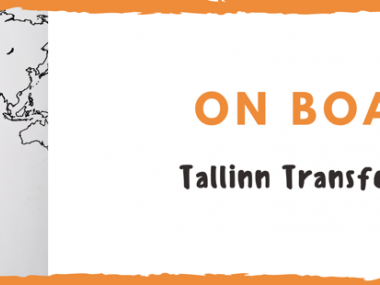How young is too young to learn about entrepreneurial spirit?
Edited on
21 December 2020Tallinn answered this question under the framework of the transnational URBACT III “ON BOARD Connecting cities through education” project. The answer will surprise you!

Learning to be an entrepreneur
Entrepreneurship is a necessary process from both a personal and collective standpoint, in order to achieve new goals. It is very important for entrepreneurial spirit to be a part of the educational system from an early age: “Entrepreneurialism is an approach and an attitude that anyone can develop and training begins from birth,” says Liisi Haas, an expert who is part of the project team and director of the field project of the Estonian Chamber of Commerce and Industry, “that’s why it’s important that valorisation and training in entrepreneurialism start at the beginning of a person’s life.”
But how?
Cooperating to educate in entrepreneurship
A cooperative network that works and an inspiring learning environment are the foundations for all of this. Being part of the ON BOARD project has allowed Tallinn to learn from the Educational Innovation Network (EIN) in Viladecans and adapt its good practices to local needs. Plus, other transnational meetings and visits to other schools of the project partner cities gave them the opportunity to compile and adapt many ideas in order to convey entrepreneurial spirit to the littlest ones.
Inclusion is the key
Like Viladecans, Tallinn rewards the development of entrepreneurial spirit, imagination, the ability to shape ideas, to inspire children from a young age through entrepreneurial spirit, and to push them to dream big, which is decisive in fostering an entrepreneurial mind from childhood. In this regard, the ON BOARD translational cooperation network is based on a variety of projects from each of the member cities that promote innovation and creativity, including the development of entrepreneurial spirit among students and cooperation among educational institutions, city agencies, companies, families and other community members to achieve it. To boost the students’ entrepreneurial spirit, and their life skills, “you have to get both parents and organisations from the private sector involved in designing educational services, and specifically how to get their own proactive contributions right from the start.”
That’s why one of the first ON BOARD activities Tallinn put in place was to set up an URBACT Local Group (ULG). More than twenty educational institutions wanted to take part, and several noted on their applications that participating in the project would give them the opportunity to learn good practices from others and gain experience in social participation and cooperation.
Challenges
Thanks to the ON BOARD transfer methodology, Tallinn has successfully launched its own cooperation network, a process that is still under way as it has one challenge still to be met: organising its communication. Frequent changes in the position of members and the fact that the parts of the network haven’t yet developed their own specific functions and responsibilities have made the process more difficult. So, Tallinn is continuing to work, with particular emphasis on improving efficiency and quality of the network’s communications.
Discover the rest of the journey and how Tallinn is applying transfer experiences in the full Transfer history here.
Submitted by s.mendez on
